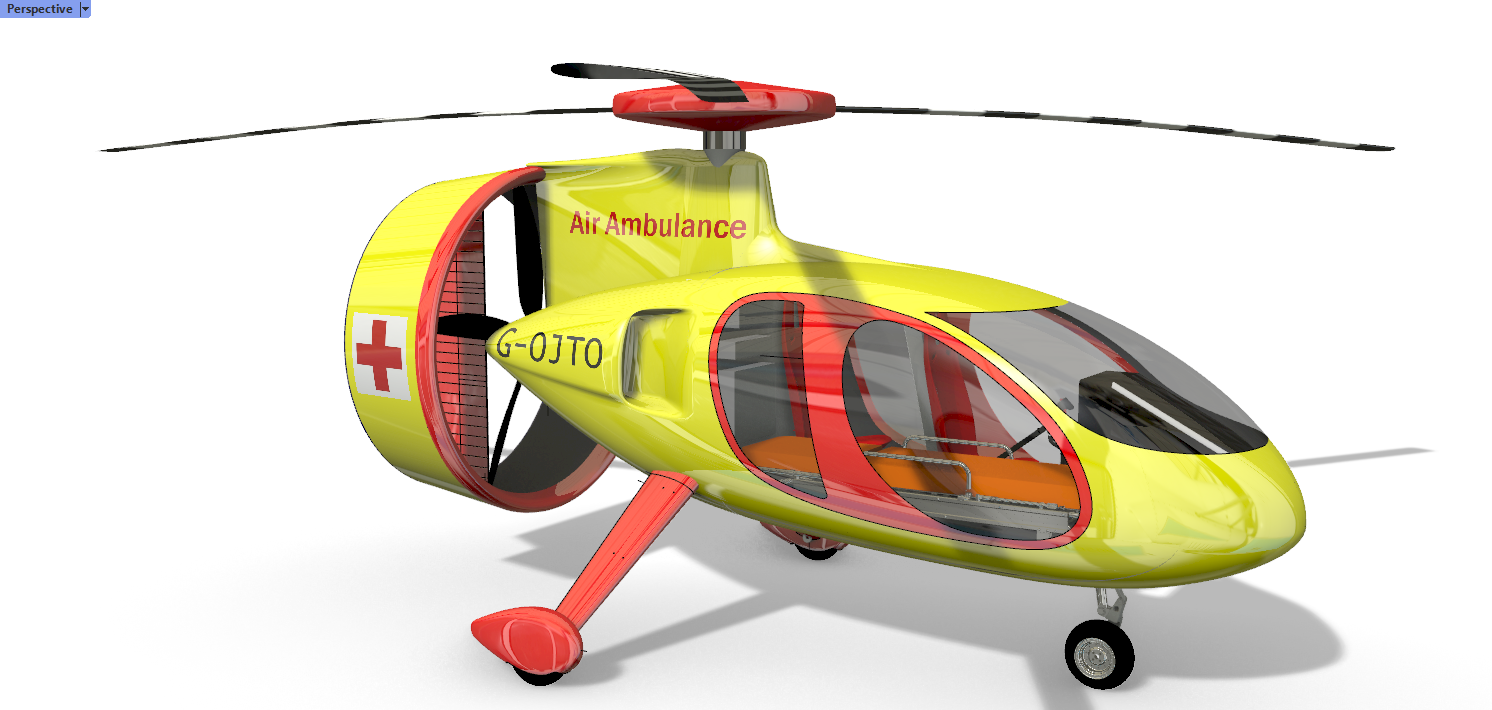A UK company developing a sustainable and runway-independent aircraft to connect remote rural areas and support emergency rescue services, has secured Civil Aviation Authority (CAA) E Conditions certification for its ‘innovative air transport solution.’
ARC Aero Systems, which aims to transform rural transportation through electric vertical take-off and landing (eVTOL) technology, is in advanced stages of developing a specially adapted hybrid-electric powered aircraft.
Securing CAA E Conditions registration for its modified design of the Avian Pegasus, a jump take-off gyroplane developed in the 1960s, will enable ARC to begin test flights on its model of the aircraft.
A statement from ARC explains that about their work, saying; “ARC’s adapted aircraft brings a unique approach, focused on accessibility, affordability and sustainability, to this market.
“While other eVTOL transport providers are reliant on significant infrastructure investment to operate, Pegasus’ self-charging hybrid-electric engine requires no e-charging facilities and can run on a range of available fuels, including hydrogen, further enhancing its green credentials.
“The aircraft requires only a small area of level ground to land and take-off making it much more accessible in reaching remote communities.”
ARC is currently engaged in an investment round where it aims to secure £1.5m through crowdfunding and contributions from private investors. ARC says the funds will ""support further commercialisation of its adapted model of Pegasus"", which the company plans to bring to the market in 2026. To date, ARC has raised around £9m from established investors, including the British Business Bank, and through grants from organisations including the Low Carbon Innovation Fund and Innovate UK, which has contributed £2m in funding.
In advance of its market launch, the company has secured the sale of 15 of its Pegasus aircraft including 10 which have been purchased by Norwich-based charity SkyAngels Air Ambulance, and a further five to be commissioned by a Scottish-based pilot training school and an aerial service operator.
ARC’s founder and CEO, Dr Seyed Mosheni, said: “We are delighted to have secured CAA E Conditions certification for our hybrid version of Pegasus, which enables us to conduct test flights and ultimately bring our innovative air transport solution to market.
“There is a huge and increasing demand, reflected in market growth forecasts, for an affordable, sustainable, runway-independent aircraft connecting remote rural areas for passengers and cargo. Through our adapted design of the Avian Pegasus, we are developing an aircraft that is already certified by global aviation authority rules and has existing pilot training programme syllabuses.
“Our approach delivers a far more affordable and flexible solution within the air mobility market as our aircraft require virtually no infrastructure meaning they provide an ideal solution for servicing remote communities and supporting emergency responders. We are also taking a sensible, step by step approach to sustainability by developing a self-charging, hybrid-powered aircraft which can run on any fuel, including hydrogen, as it becomes available on the market.
“We are at an exciting stage in our development and already securing advance orders for Pegasus demonstrating the wider market confidence in our innovative proposition. This current investment round offers investors an opportunity to join our journey and help drive the business forward as we prepare to enter a market that is set to increase five-fold by the end of the decade.”
ARC Aero Systems secures CAA accreditation for sustainable air transport solution

